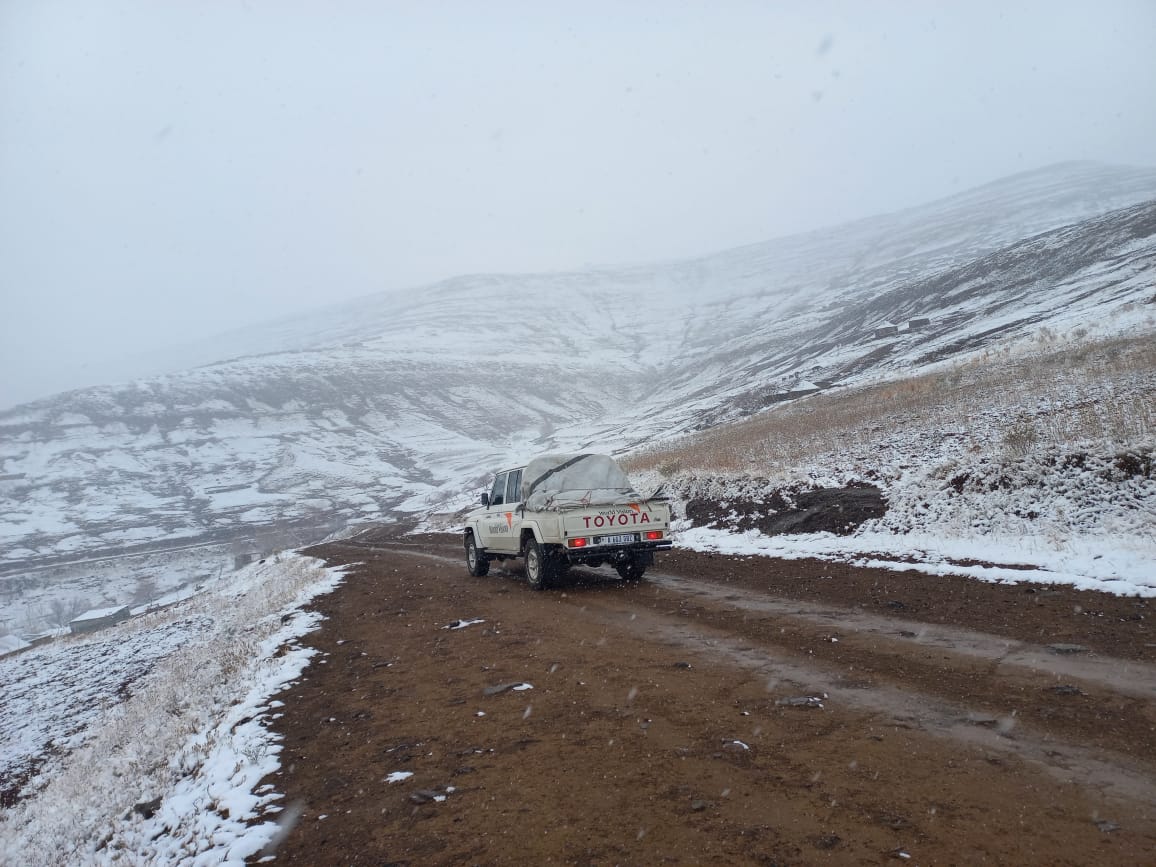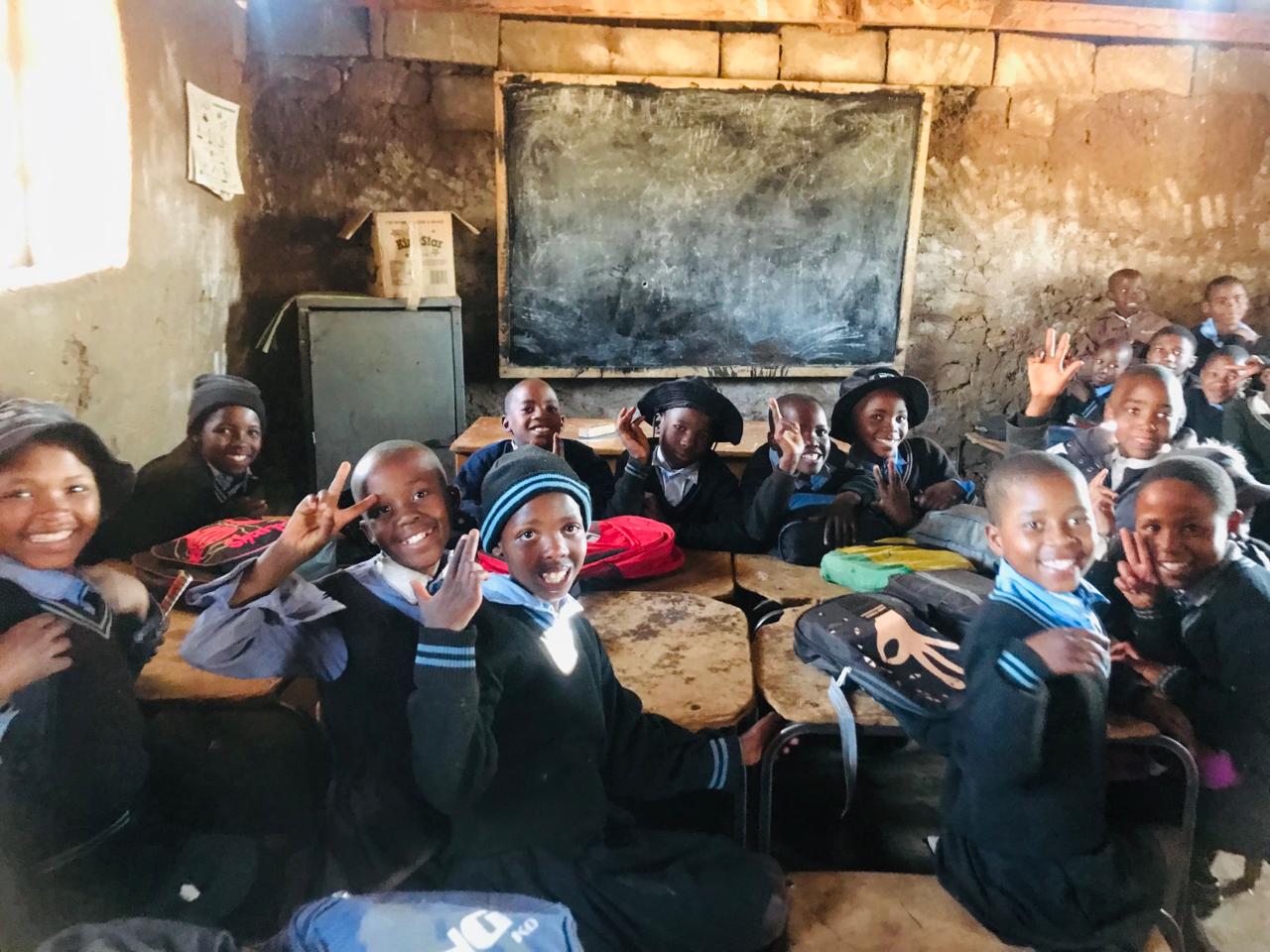Strengthening Education Amid Climate Disasters in Lesotho
By: Lineo Monalana, Advocacy, Policy & Communications Officer, Lesotho

Lesotho, compared to some other countries in Africa, experiences fewer natural disasters such as earthquakes, hurricanes, or tsunamis. However, it is not immune to the effects of climate change, which can lead to droughts, floods, and erratic weather patterns and heavy snowfall disasters. These events can have a significant impact on various aspects of life, including agriculture, infrastructure, and education.
These challenges related to climate change often affect children's education in schools. When a disaster strikes more than 50% of the affected population is children, and Lesotho is no exception to this trend during emergencies. The recurring climate-imposed disasters the country faces pose risks to human life and property, and it is during these harsh times that, children from affected areas encounter significant challenges in accessing their right to education.
The impact of these disasters causes disruption of school infrastructure due to floods and heavy snowfall, making school buildings unsafe or inaccessible, Hazardous travel conditions, such as flooded roads or snow-covered paths, further impede children's ability to reach school safely. Displacement of children resulting from these disasters disrupts children's schooling routines, leading to temporary or long-term absences. Additionally, health risks like waterborne diseases and respiratory illnesses pose threats to children's well-being, often resulting in missed school days.

“We do not have access to clean water in rural schools, which affects the overall hygiene of students and hazardous conditions of schools such as dilapidated roofs, walls, toilets and broken windows are not conducive environments for children to learn” - A teacher in one of the schools in the rural areas
We do not have access to clean water in rural schools, which affects the overall hygiene of students and hazardous conditions of schools such as dilapidated roofs, walls, toilets and broken windows are not conducive environments for children to learn
Equally the economic strain on families due to disasters can also limit children's access to education, as they struggle to afford school fees or other educational expenses. The psychological trauma experienced by children during disasters further impacts their ability to concentrate in school, necessitating additional support from teachers and counselors. Addressing these challenges is crucial to ensuring that Basotho children can access their right to education during disaster-imposed emergencies.
World Vision envisages "a world where every child lives life in all its fullness," driving initiatives to promote children's welfare, including ensuring access to education as a fundamental right. In line with this vision, World Vision International Lesotho through the support of the European Union Humanitarian Aid is actively implementing the 'Consolidating and Strengthening Disaster Risk Reduction (CSDRR)' project to enhance both national and community capacities for effective disaster preparedness and response in Lesotho by employing comprehensive approaches to promote anticipatory action and build community-level resilience, including a resource mobilization campaign for Education in Emergencies.
As Ms. ‘Mamokobo Lebeko, the Project Coordinator, affirms, "Through initiatives like the 'Consolidating and Strengthening Disaster Risk Reduction (CSDRR)' project, World Vision is strengthening national and community capacities to effectively respond to emergencies and safeguard children's education.”
World Vision is strengthening national and community capacities to effectively respond to emergencies and safeguard children's education - Mamokobo Lebeko
World Vision International Lesotho together with Disaster Management Authority (DMA) and the Ministry of Education & Training as part of the preparedness approach towards mobilizing resources for Education in Emergencies are embarking on a campaign to host dialogues amongst all key stakeholders to deliberate on integrated strategies in tackling the lack of adequate resources for schools during disasters and encouraging stakeholders to join hands in planning, preparing and responding to disasters underscoring a collaborative effort nationwide to support education in emergencies; this coordination among stakeholders will ensure sustained interventions in schools and communities when disaster strikes. “By pooling resources and sharing initiatives, Lesotho can strengthen its response to crises, drawing lessons from past experiences such as the disruptions caused by the COVID-19 pandemic in 2019” – Tseliso Ncheke, World Vision Grants & Acquisition Lead
By pooling resources and sharing initiatives, Lesotho can strengthen its response to crises, drawing lessons from past experiences such as the disruptions caused by the COVID-19 pandemic in 2019 - Tseliso Ncheke
Most societies during the Covid-19 pandemic were caught off guard. Some families were confronted with dire need for food, the education system fell crippled as learning was disrupted due to the total shutdowns that restricted movements and children would not go to school, businesses were closed down posing threat to livelihoods. Nckeke lamented that; if we do not come together as a nation to address these challenges posed by the effects of climate change, then the same challenges the communities, families, children especially the most vulnerable faced during the Covid-19 pandemic will still affect us today “I submit to you that if we were to be faced with Covid- 19 again, we will still have the same challenges because we are still not prepared to deal with the disasters we are facing today”, he said.
According to the United Nations International Children’s Fund 2020, only 20% of children who were in school before the COVID-19 pandemic were able to sustain their learning during lockdowns while the remainder did not experience the same fortune. This statistic underscores the urgent need for collective resource mobilization for Education in Emergencies.
This includes providing training to teachers on disaster risk reduction and developing School Disaster Preparedness Plans (SDPPs) to address challenges such as access to clean water and hazardous school conditions, inclusion of Disaster Risk Reduction & Management (DRRM) into the school curriculum, to capacitate learners for meaningful participation in disaster management.
We call on to government institutions, multilateral agencies, business communities, educational institutions, civil society organizations, communities and other stakeholders to join us in the campaign to strengthen education resilience in Lesotho. Your support can make a tangible difference in the lives of children, ensuring they have the opportunity to learn, grow, and thrive, regardless of the challenges they may face.
World Vision International Lesotho, through European Union Humanitarian Aid, recognizes the pressing need for disaster preparedness and resilience-building efforts in Lesotho, particularly in rural areas that are highly vulnerable to climate change-related challenges. The outlined interventions demonstrate a comprehensive approach to addressing these issues and fostering community-level resilience.
Learn more about the project Consolidation and Strengthening of Disaster Risk Reduction Project | Lesotho | World Vision International (wvi.org)